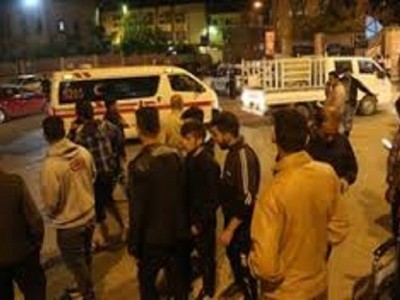(CATALONIA, LANKAPUVATH) –Catalonia’s ousted president and several members of his deposed cabinet have fled to Belgium hours before Spain’s attorney general asked for charges of rebellion, sedition and misuse of public funds to be brought against them over their decision to declare independence last week.
Shortly after the possible charges were announced on Monday, Spanish media reported that Carles Puigdemont and five of his former ministers had driven to Marseilles and then caught a flight to Brussels. There was speculation they could be intending to set up a government in exile or claim asylum.
Spanish government officials said Puigdemont was in Brussels, which was confirmed late on Monday by Umberto Gambini, the head of Catalan legislator Ramon Tremosa’s office.
In an apparent reference to Josep Tarradellas, the Catalan leader who lived in exile in Paris during the Franco dictatorship, a spokeswoman for Puigdemont’s Catalan Democratic party (PDeCat) said: “We had presidents in this country who were not able to be here during Franco’s time and they were still the president of the Catalan government.”
Over the weekend, Belgium’s immigration minister suggested that Puigdemont could be offered asylum in the country. “It’s not unrealistic, looking at the current situation,” Theo Francken, a member of the Flemish separatist N-VA party, told the Flemish-language broadcaster VTM on Saturday.
“Looking at the repression by Madrid and the jail sentences that are being proposed, the question can be asked whether he still has the chance for an honest court hearing.”
Belgium’s prime minister, Charles Michel, later clarified that an asylum request from Puigdemont was “absolutely not on the agenda”. On Monday, Michel’s office declined to comment on rumours that the former Catalan president intended to seek asylum.
On Monday night, Puigdemont’s Belgain lawyer said the Catalan leader had not yet decided whether or not to seek asylum.
Paul Bekaert, who has represented members of the Basque separatist group Eta – whose long terror campaign claimed more than 800 lives – told VRT network that his client was “not in Belgium to specifically ask for political asylum. That is not decided yet.
Spain’s prime minister, Mariano Rajoy, took the unprecedented step last Friday of using article 155 of the constitution to sack Puigdemont and his government and impose direct rule on Catalonia after the regional parliament voted to declare independence.
As well as taking control of the region’s civil service, police, finances and public media, Rajoy has used the article to call elections in Catalonia to be held on 21 December.
On Monday, Spain’s attorney general, José Manuel Maza, announced that he would ask the national court to bring the charges against 14 members of Puidgdemont’s administration for pushing ahead with independence in defiance of Spain’s constitution and constitutional court.
They include Puigdemont, his deputy, Oriol Junqueras, the administration’s foreign minister, Raül Romeva, and the government spokesman, Jordi Turull.
The supreme court, meanwhile, will investigate possible action against Carme Forcadell, the speaker of the Catalan parliament, and other parliamentary officials for the part they played in paving the way for the vote.
Maza said the charges were being sought “because their actions over the past two years have produced an institutional crisis that culminated with the unilateral declaration of independence made with total contempt for our constitution on 27 October”.
Under Spain’s legal system, his request will now go before judges for consideration. The independence leaders could be called to testify if charges are brought.
The crime of rebellion carries a maximum sentence of 30 years’ imprisonment, while sedition carries a 15-year penalty. Misuse of public funds is punishable with a six-year jail term.
Puigdemont and Junqueras have both attacked the Spanish government’s response to the declaration.
Puigdemont has urged Catalans to resist “repression and threats, without ever abandoning, at any time, civic and peaceful conduct”, while Junqueras described Madrid’s reaction as a “coup d’état against Catalonia”.
Despite fears that many of Catalonia’s 200,000 civil servants would refuse to follow direct rule from Madrid, they returned to work on Monday.
Spain’s interior ministry has already named a new chief of the regional force, the Mossos d’Esquadra, and reminded all officers stationed in Catalonia that they have a duty to “obey orders, guarantee the rights of all, and fulfil the mandates” of the Spanish constitution and the region’s statute.
With regional polls less than eight weeks away, the two main parties in Puigdemont’s coalition said they intended to run in one way or another.
A spokeswoman for PDeCat said: “Mr Rajoy, we will see you at the ballot boxes,” while a spokesman for Junqueras’s Catalan Republican Left party said: “We will find a way to participate on 21 December. [It] could be one more opportunity to consolidate the republic.”
According to a recent poll for El Mundo, the elections could be very close, with anti-independence parties being supported by 43.4% , with pro-independence parties on 42.5%.




